
Selected reviews about elderly care communities
Selected reviews about elderly care communities offer valuable insights into the experiences of residents and their families. These reviews can highlight the strengths and weaknesses of different communities, helping you make an informed decision when choosing the right care for your loved one.

How to set up a special needs trust for a 73 yr. old relative with NPD? Are there other options?
To set up a special needs trust for a 73-year-old relative with Narcissistic Personality Disorder, consult an attorney specializing in estate planning and disability law. Explore alternatives like pooled trusts or ABLE accounts, which can offer financial support while preserving eligibility for government benefits without compromising your relative's autonomy.
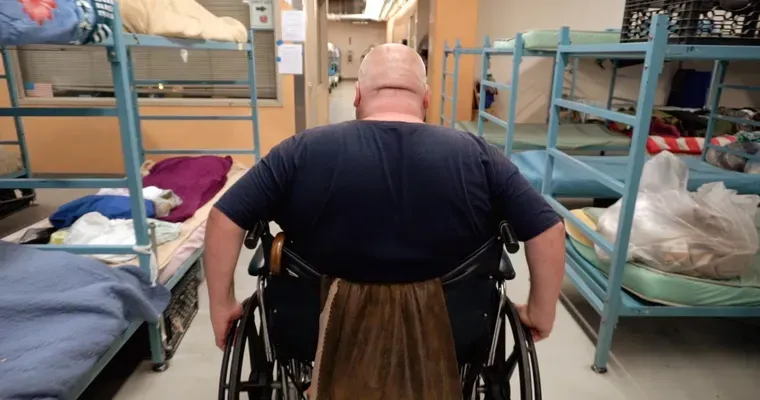
Can a nursing home/rehab refuse a patient from a hospital because he cannot move himself from bed to wheelchair?
A nursing home or rehabilitation facility may refuse a patient from a hospital if they lack the ability to transfer independently from bed to wheelchair. Facilities often require a certain level of mobility to ensure safety and adequate care, as well as to meet staffing and resource capabilities.

Mother not eating or drinking the last 4 days. She is sleeping too much as well. Getting concerned. What should I do?
If your mother has not eaten or drunk anything for the last four days and is excessively sleeping, it's important to seek medical attention promptly. These symptoms could indicate a serious underlying issue. Contact a healthcare professional to discuss her condition and consider taking her to a doctor for evaluation.

Wife has been recently diagnosed with dementia (Lewys Bodies). I know dementia is not curable. How long is she likely to live?
A recent diagnosis of Lewy body dementia indicates a progressive decline in cognitive and physical abilities. While the disease is not curable, its progression varies significantly among individuals. On average, people may live between five to eight years after diagnosis, but some may live longer or shorter depending on various factors.

There Comes A Time!
There Comes A Time! is a poignant exploration of life's inevitable transitions and the moments that define our journey. Through a blend of personal narratives and universal themes, it encourages reflection on change, resilience, and the significance of embracing each phase with courage and hope, reminding us that every ending leads to new beginnings.
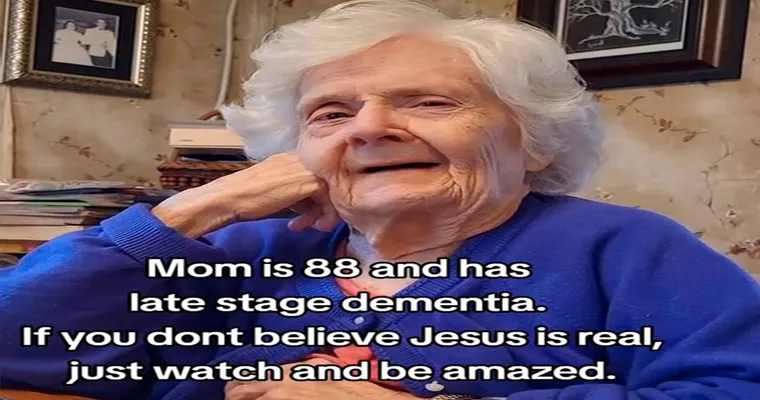
95 year old mom with dementia wants to sleep herself to death. Is this common?
A 95-year-old woman with dementia expresses a desire to sleep constantly, reflecting a common phenomenon in elderly individuals facing cognitive decline. This behavior may stem from fatigue, depression, or a longing for peace. Understanding and compassion are essential in addressing her needs and improving her quality of life during this challenging time.

MIL is getting home hospice with husband and SIL living there and providing care with some help. I am far away, trying to help.
My mother-in-law is now receiving home hospice care, supported by her husband and sister-in-law who live with her. They provide daily assistance, though they occasionally receive additional help. From a distance, I’m doing my best to offer support and stay connected during this challenging time.
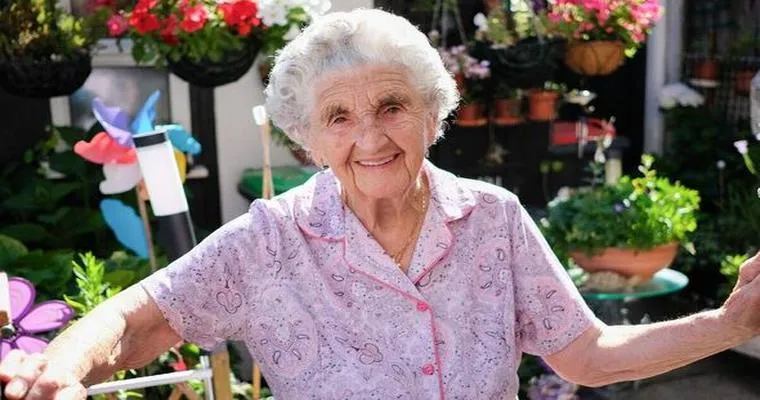
My 105-year old aunt has passed.
My 105-year-old aunt has passed away, leaving behind a legacy of love and wisdom. Her remarkable life spanned over a century, filled with cherished memories, laughter, and resilience. Though her absence will be deeply felt, her spirit will continue to inspire and guide us in our lives.

Vacations for families with loved ones on hospice?
Vacations for families with loved ones on hospice provide an opportunity to create cherished memories together in a supportive environment. These trips focus on relaxation and connection, allowing families to enjoy meaningful experiences while honoring their loved ones. Activities are often tailored to accommodate various needs, fostering a sense of peace and togetherness.

Mom said she regrets getting a pacemaker.
Mom expressed her regrets about getting a pacemaker, feeling it has altered her quality of life more than she anticipated. She struggles with the limitations it imposes, recalling a time when she felt more vibrant and free. This decision weighs heavily on her as she navigates her daily routine.

How to Find out If a Loved One Had a Will
To determine if a loved one had a will, start by checking their personal documents, including files or safes. Contact their attorney or financial advisor, as they may have retained a copy. Additionally, search local probate courts, as they may have records of filed wills.
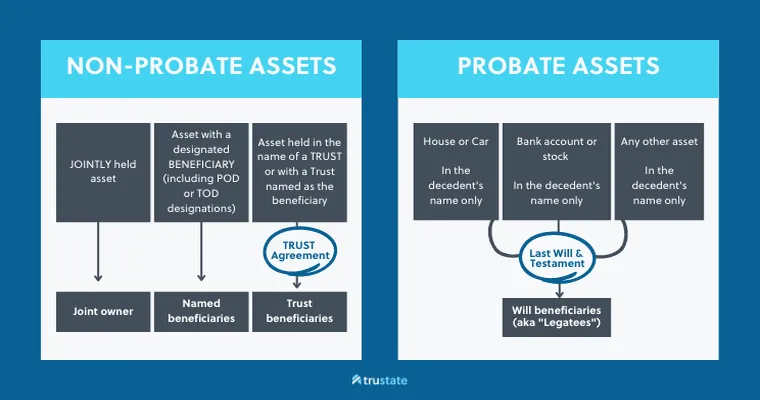
Understanding Which Assets Must Go Through Probate
Probate is a legal process for settling an estate after someone passes away. Not all assets require probate; typically, only those solely owned by the deceased without designated beneficiaries, such as real estate, bank accounts, and personal property, must go through this process. Understanding these distinctions can simplify estate planning.

Understanding Probate and Estate Administration
Understanding probate and estate administration involves navigating the legal process of validating a deceased person's will and distributing their assets. This includes settling debts, managing estate taxes, and ensuring the rightful heirs receive their inheritance. Knowledge of local laws and procedures is essential for a smooth transition during this sensitive time.

Estate Tax Q and A for Family Caregivers
This resource provides essential information for family caregivers regarding estate tax considerations. It addresses common questions about tax implications for inherited assets, potential liabilities, and strategies for effective estate planning. Understanding these aspects can help caregivers navigate financial responsibilities and ensure a smoother transition for their loved ones.
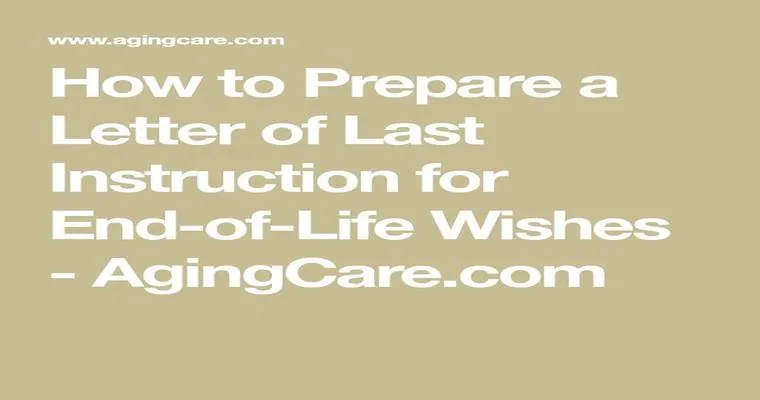
How to Prepare a Letter of Last Instruction for End-of-Life Wishes
To prepare a Letter of Last Instruction, begin by outlining your personal, financial, and medical preferences. Include details about funeral arrangements, asset distribution, and any specific wishes you want to communicate. Ensure the letter is clear, concise, and accessible to your loved ones, providing them with guidance during a difficult time.
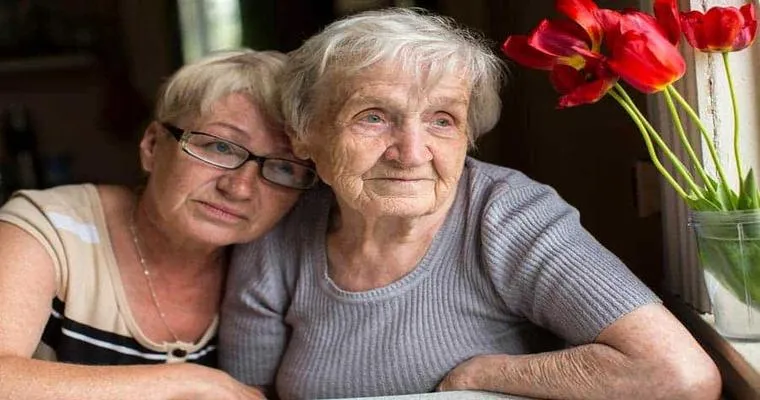
When Is It Time to Call Hospice?
Knowing when to call hospice involves recognizing when a patient's illness is terminal and curative treatments are no longer effective. Signs may include frequent hospitalizations, significant weight loss, decreased energy, and difficulty with daily activities. Ultimately, it's about prioritizing comfort and quality of life for the patient and their family.

How to Alleviate Physical Pain at the End of Life
Alleviating physical pain at the end of life involves a compassionate approach that includes effective pain management through medications, physical therapy, and complementary therapies. Emotional support, open communication with healthcare providers, and creating a comfortable environment also play crucial roles in enhancing the quality of life during this challenging time.

Why Caregivers Shouldn't Feel Guilty About Calling Hospice
Caregivers often experience guilt when considering hospice care, fearing they may be abandoning their loved ones. However, hospice provides essential support and comfort, allowing caregivers to focus on their own well-being while ensuring their loved ones receive compassionate, specialized care during a challenging time. Prioritizing health is not selfish; it's necessary.

When Loved Ones Rally Before Death
When loved ones gather around a dying individual, their presence becomes a source of comfort and support. Shared memories, emotional exchanges, and acts of tenderness create a profound bond during this poignant time. This collective experience often helps ease the transition, honoring the life lived while providing solace to those left behind.

End-of-Life Care: Signs That Death Is Near
End-of-life care involves recognizing signs that indicate death is approaching. These may include changes in breathing patterns, decreased responsiveness, and reduced appetite. Patients may experience a drop in body temperature and increased sleepiness. Understanding these signs helps caregivers provide compassionate support and ensure comfort during this critical time.
Page 82 of 134